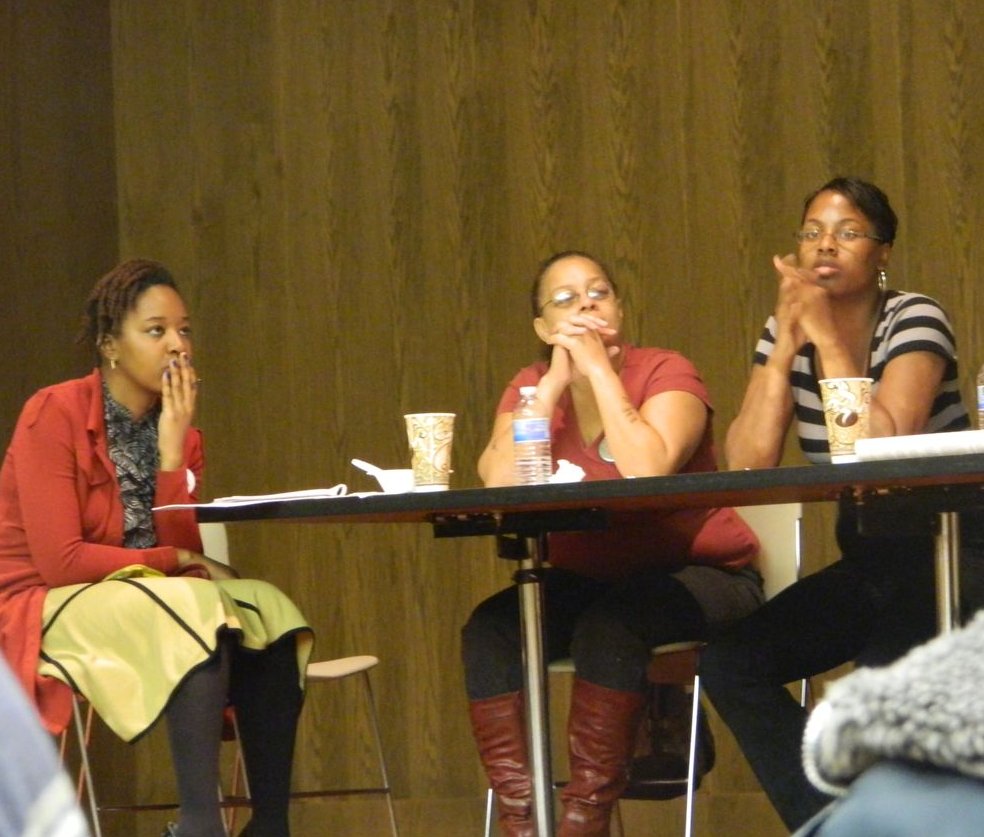Truth Commission documents Economic Human Rights Violations

CHATTANOOGA, TN—Over 150 people attended the December 10 Truth Commission at the public library in downtown Chattanooga, TN. After hearing testimonies documenting a range of human rights violations, several participants and the commissioners established a new group to claim the rights of homeless people, HOPE4Rights (Homeless People for Rights).
Participants heard concrete evidence of violations of the rights enumerated in the Universal Declaration of Human Rights (UDHR), adopted by the United Nations General Assembly on 10 December 1948. The particular focus of this Truth Commission was on economic human rights as enumerated in UDHR Article 25—the rights to food, clothing, housing and medical care and “security in the event of unemployment” and other loss of income. A quick poll of the audience revealed that nearly everyone present had experienced a violation of at least one economic right.
Testimonies also revealed violations of civil and political rights, underscoring the “indivisibility” of rights. “Dr. King came to see that civil rights could not be secured without also securing economic rights,” one commissioner said, “and we must protect civil and political rights to claim economic rights.”
The right to housing emerged as particularly urgent. Chattanooga has fewer than 170,000 residents (2010 census), but six public housing sites have been demolished in Chattanooga since 1999 and over 5000 people are on the waiting list for Section 8 vouchers. Recently, over 4,000 individuals, including almost 1,000 children, experienced homelessness in Chattanooga.
The city of Chattanooga provides no shelter beds. Privately sponsored beds are few, especially for families. In those, people testified, they often felt degraded, manipulated, discarded, and trapped in homelessness by policies that interfere with job searches and health care.
Following the Truth Commission, several commissioners and participants—all formerly homeless—created HOPE4Rights to secure the right to housing in Chattanooga. As first steps, they will offer “Know Your Rights” seminars led by poor and homeless people and will inventory vacant properties. They are recruiting allies from “the other side of the desk” who will stand on “the same side of the street” when it comes to human needs and rights. Joining the national “Homeless Bill of Rights” campaign, the group will promote a city ordinance modeled after the state bill passed in Rhode Island and introduced in California and Oregon.
Chris Brooks of Chattanooga Organized for Action (COA) underscored the need for unity and solidarity in claiming rights for all. “When we look at the numbers of people living in food deserts* or facing homelessness or being forced to go to the Emergency Room for medical help, we begin to realize that we truly are facing a humanitarian crisis in Chattanooga. This event helps us move beyond the data and numbers and provides an opportunity for our city to prove that the voices of those facing these challenges really do count, and they sound just like you and me.”
* Food deserts” are places—almost always in poor neighborhoods—where there are no food markets except “convenience stores,” “bodegas” etc. People have to travel many miles—if they can—to get to an “oasis” where they’ll find a variety of healthy foods at reasonable prices.
